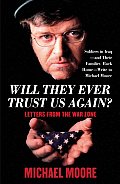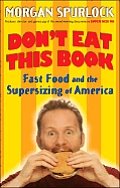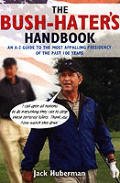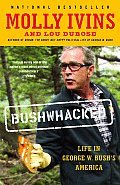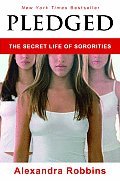
Orange County: A Personal History by Gustavo Arellano
There's a very significant difference between me, a blandly white mutt of German and Scotch-Irish heritage, and Gustavo Arellano, the son of an illegal Mexican immigrant: his family has been in the United States longer than mine has.
And while our forefathers took similarly miserable jobs, mine working in coal mines and steel mills, his picking oranges and packing tomatoes, so that their children could someday go to college and get cushy professional jobs, there's another major difference.
Nobody ever called me names, blamed me for ruining America, or tried to legislate my family out of the country. My family is American, but in the eyes of many, Arellano's isn't.
Of course, this is beyond nutso, but then again, fate would lead Arellano's family to Orange County, one of the more nutso pieces of real estate in the United States, a nest of right-wing conspicuous consumers who love the Lord, but hate the immigrants - the land of Nixon, Minutemen, and Tammy Faye Bakker.
What made Orange County this way? It's perhaps too big a question for one book, so Arellano helpfully gives us two in Orange County: A Personal History. The first story is an irreverent, mightily refreshing history of Orange County that stands in stark contrast to most of the dry, whitewashed local histories of the region. Arellano tracks the settling of Orange County from its mission and orange grove days to the massive postwar migration, and then traces all its present-day conservatism, fundamentalism, isolationism, and racism right back to its roots. In his hands, Orange County is wittily dissected as postsuburbia, the Ellis Island of the 21st century, and "a petri dish for America's continuing democratic experiment."
But the second story, told in alternating chapters, is the story of the Arellanos in America, from his great-grandfather, chased out of town by a herd of potato-slinging youths to the author himself, and his transformation from geeky OC pocho to politically-conscious and sometimes controversial author of the syndicated column, "Ask a Mexican!"
Arellano is heartbreaking, sometimes cruel, and not always easy to read when talking about his parents' limited education ("I don't want to be like you and my mom, Papi"), his father's alcoholism during his early childhood, and the typical callousness of adolescence (none of the Arellano kids went to, or much cared about their father's citizenship ceremony). But it's all in the spirit of that all-too-rare a thing, thoughtful reflection on the past and the truthful memoir. And despite the distance he's travelled from his family's roots, it's also clear that Arellano takes a great deal of pride in their journey from the rural village of El Cargadero to Anaheim.
One small bone to pick, however. Though Arellano admits he's been called immature, perhaps a bit the result of sharing a bunk bed with his younger brother until well into his 20s, there are times when he describes women that I want to roll my eyes, and perhaps toss him into an ice bath or whack him on the nose with a rolled-up newspaper. When a woman tells you she's not particularly fond of your column, it's probably not okay to write in your book, "Chula, I wasn't too fond of the spare tire around your midsection," nor to discuss a girl by saying, "Then I actually met her - I'm not going to describe the gal since she's very much a sweetheart, but let's just say she wasn't my type," nor to describe a crush as possessing "hips that moved like hydraulics." Sort of icky.
That tiny bit aside, I adored every minute of the book, as I do just about anything that Arellano writes. You'll have fun, you'll learn something, and if you're a pinche gabacho, you may just come a step or two closer to understanding why we as a nation need to stomp out this nastiness about immigration once and for all.
As Arellano says:
"As Orange County goes, so goes my family, and as my family has traversed through a century or assimilation and resistance, so will the United States - not the easiest of transitions, but always moving forward. Toward the fruit of knowledge - not an apple, but an orange. Picked by a Mexican, of course."



















